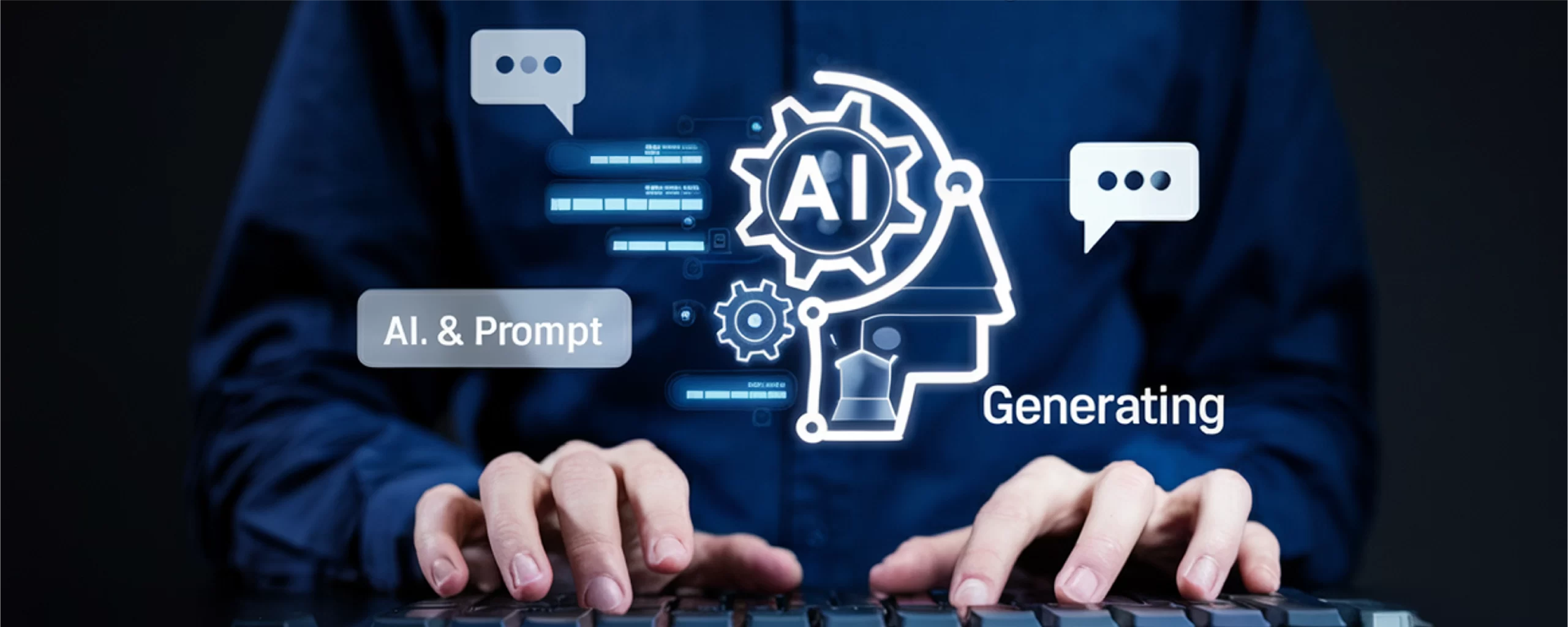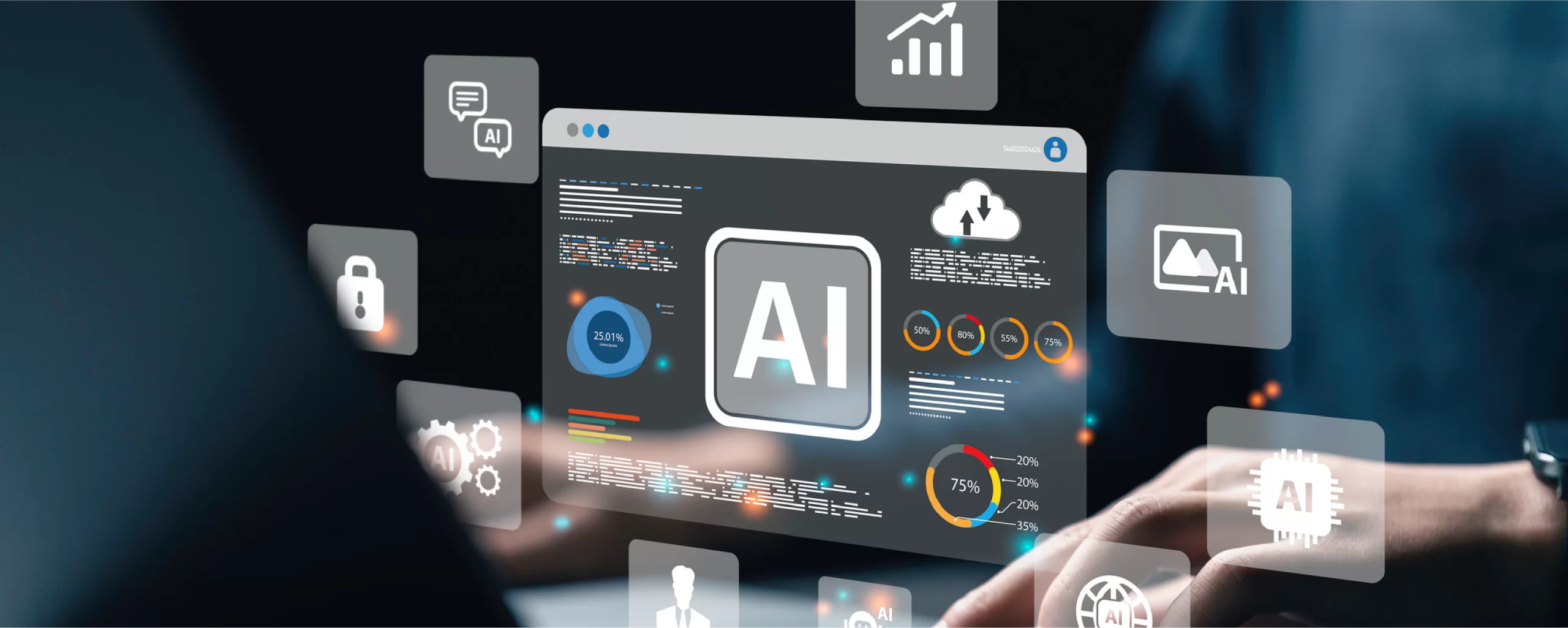Future of Medicine: Artificial Intelligence in Healthcare
Our interactions, data consumption, and getting products and services have been revolutionized by artificial Intelligence (AI) across various sectors. It has already transformed the patient journey in healthcare, medical practices, and operations of pharmaceutical companies. Hence, Artificial Intelligence in Healthcare has made huge inroads. When AI pervades artifacts like mobile phones to impact links within logistics, then its three main categories in healthcare include:
- Patient-centered
- Clinician-centered
- Administrative and operational
From the simplest to the most complex roles, the future of AI in health care covers many aspects. Such tasks might involve answering phone calls, examining medical histories, studying health trends within certain communities, creating drugs and medical devices, reading radiography photos, developing clinically meaningful diagnoses and treatment plans, or even conversing with one’s patients.
AI technologies find broad applications in diagnosing illnesses, constructing treatment plans for patients, discovering the best antibiotics, and creating customized drugs. AI solutions in healthcare enable gathering large diversified datasets to analyze and end users get specific outcomes.

AI actively supports the accessibility of healthcare facilities by minimizing their costs, preventing errors, and increasing the range of patient admissions. Its influence can be felt through such examples as chatbots, computer-aided detection (CAD) systems for diagnostics, imaging data analysis for drug discovery, and patient self-service.
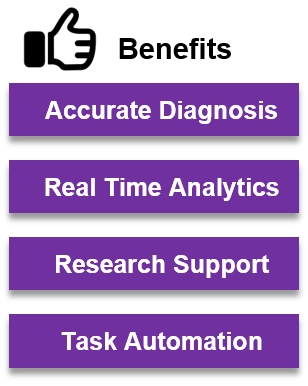
NLP and ML will become increasingly important as they continue to be incorporated into healthcare, providing chances to:
- Boost the effectiveness of clinicians and providers and the caliber of care they provide
- Boost patient involvement in their own healthcare process and expedite their access to healthcare providers
- Reduce costs by hastening the creation of novel medicinal remedies
- Using analytics to glean insightful information from clinical data that was previously unstructured can help you tailor medical treatments
Although individual AI technologies offer considerable value on their own, the greatest potential lies in the synergies created by integrating them across the entire healthcare value chain, spanning from patient journey and diagnoses to treatment and ongoing health maintenance. By leveraging AI comprehensively, companies can optimize processes, enhance decision-making, and ultimately provide greater value to stakeholders.
Healthcare enterprises are grappling with pervasive challenges impacting every value chain stage, from discovery to treatment. Integrating AI at each step of the process has the potential to greatly mend patient health and well-being.
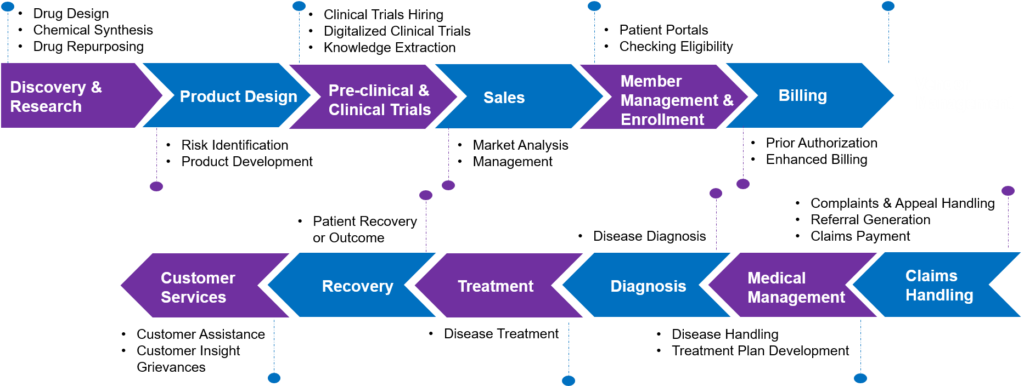
The healthcare market is witnessing a swift expansion and broad adoption of AI technology. Over the past few years, the healthcare sector has undergone a groundbreaking evolution thanks to the integration of AI. Its market is swiftly expanding and enjoying widespread acceptance.
The need for early disease diagnosis and better understanding has increased due to factors such as the rising global old-age population, ever-changing lifestyles, and the rising incidence of chronic diseases. In order to precisely anticipate diseases in their early stages based on previous health records, artificial intelligence (AI) and machine learning (ML) algorithms are becoming widely used and integrated into healthcare systems.
Key industry players focused on product innovation and technology partnerships to broaden their product portfolio and satisfy rising demand during the pandemic, which resulted from the increasing adoption of AI technologies in healthcare applications.
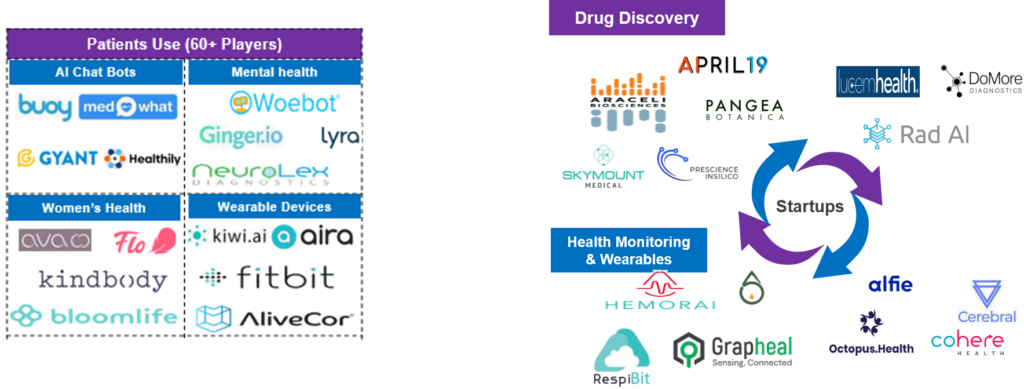
Attaining a competitive edge in the market entails players focusing on many key tactics, including increasing investments in research and development, developing and launching novel products, increasing the number of technological collaborations, and offering unique services. Additionally, the rise in the market is being aided by the recognition and creation of AI-based firms.
Ever growing use of AI in healthcare comes with certain risks. Risks are shared equally amongst all the stakeholders. Recently, WHO published a set of regulatory considerations on artificial intelligence (“AI”) for health, which are highlighted below:
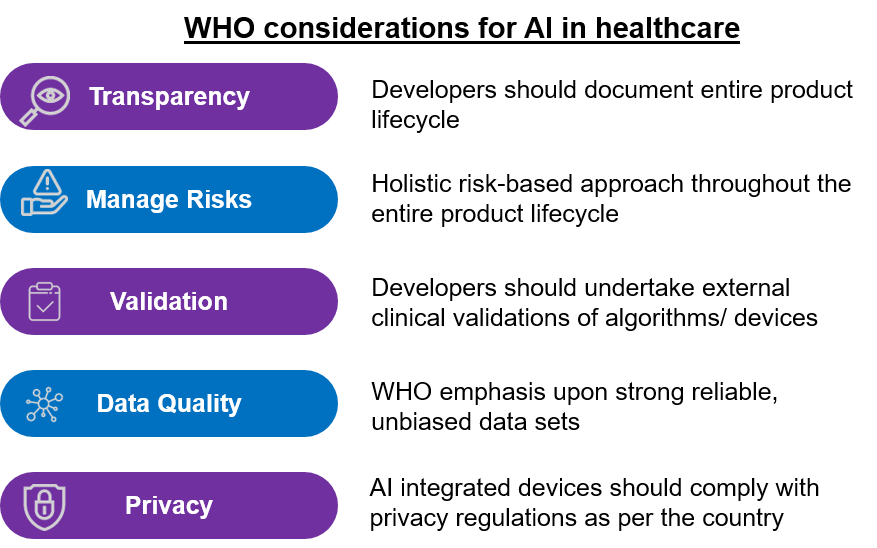
Healthcare artificial intelligence (AI) offers potential answers to some of the problems faced by health systems worldwide. However, it is widely known from implementation and innovation studies that healthcare leaders frequently oppose new technology, which slows and varies their uptake.

Without question, artificial intelligence (AI) is developing at an astounding rate and becoming more complex every day. Considering how quickly AI is developing, it makes sense to think about how this will affect healthcare in the future. As AI technology progresses, its integration into healthcare practices will continue to evolve and expand.
The field of diagnostics is most conducive to AI advancement. Artificial intelligence (AI) can comb through large databases, finding patterns and connections that may enable quicker and more precise disease diagnosis. Furthermore, AI has the potential to create individualized treatment strategies that are precise to each patient’s physiology. AI also has the potential to entirely renovate patient safety and care. AI-powered robots are already helping with medical duties like moving and carrying patients. In the future, AI may be used to monitor vital indicators in real-time and identify possible risks in advance, preventing negative outcomes before they happen.
All things considered, artificial intelligence in healthcare has a bright future. With AI capabilities growing at a rapid pace, there is a promise for improving the lives of many people worldwide through future medical improvements.

